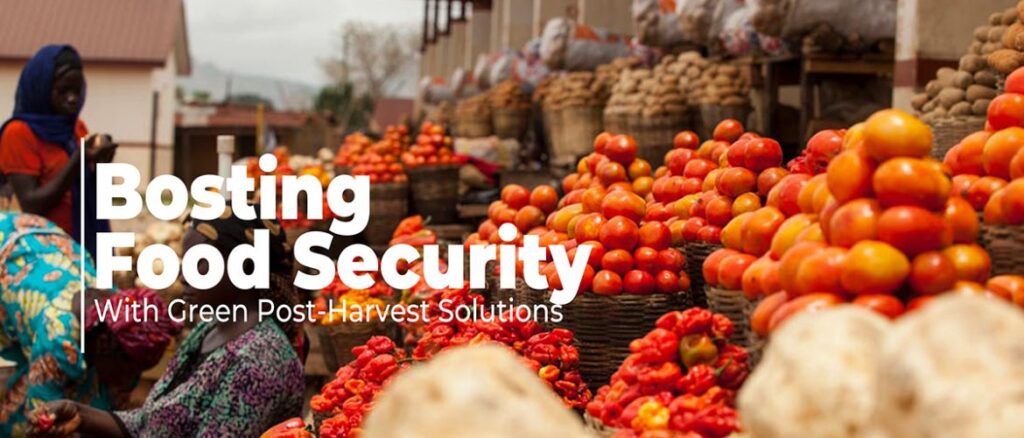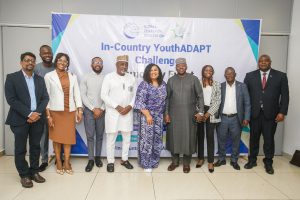There are more hungry people in the world today as revealed by the annual food security report of the United Nations. Rising food prices exacerbated by debilitating climatic conditions, poor infrastructures and the covid-19 pandemic is threatening to push more people below the food security threshold.
The 2020 State of Food Security and Nutrition in the World shows that almost 690 million people went hungry in 2019 – up by 10 million from 2018, and by nearly 60 million in five years.
In the light of the current prevailing conditions, it has been forecasted the over 130 million people could be pushed into chronic hunger by the end of 2020[1]. What is more frightening for us in Africa is that even though Asia currently has the highest number of hungry people, the report shows that Africa has the fastest-growing population of hungry people.
Stemming the tide of rising food insecurity begins with a proper diagnosis and identification of the determinant factors. One of the key drivers of the food insecurity in Nigeria and the rest of the world is post-harvest waste. The graph when plotted shows a positive correlation between rising food prices, food insecurity and post-harvest losses. It is reported that as much 25% of annual food produced in Nigeria goes to waste[1], this figure varies for different crops and their respective value chains. In monetary terms a 2017 report put the figure at over $9 billion dollars[2]. Besides what is lost monetarily there is also the cost implication on the environment with respect to global warming arising from emissions. According to a report by the FAO of the United Nations, the entire global warming potential along the complete rice value chain account for the emissions of around 0.65 million tonnes of CO2 eq. into the atmosphere[3].
There are numerous factors responsible for post-harvest loses such as poor handling, dysfunctional infrastructure, inefficient storage technologies, redundant agricultural policies and of course climate change to mention a few. The influence of climate change impacts on food losses begins by lowering potential yield during crop production that is pre harvest losses and further reduces the attained yield through postharvest losses particularly in storage[4].
Climate smart agricultural innovations, increased investment in farmers’ education and support from government establishments, these were some of the solutions highlighted by Babajide Oluwase the founder of Ecotutu. Ecotutu is a climate smart agricultural startup working to democratize the green cold chain solution in Nigeria. Speaking on Green Innovation Talks with Mr. Banks (Bankole Oloruntoba, CEO NigeriaCIC), the weekly Webinar of the Nigeria Climate Innovation Centre. Addressing the subject “Boosting Food Security With Green Post-Harvest Technologies” Babajide unearthed some of the challenges faced by innovators in a bid to bridge the technological gaps and ensure that famers get maximum value from the proceeds of their harvest.
Ecotutu the signature product of RenewDrive which was part of the incubation programs of the NCIC is a cooling technology that leverages solar energy to enable refrigeration of food products and increase the quality of food harvest in Nigeria. The uniqueness of Ecotutu stems from its positioning as a service that farmers can enjoy without having to squeeze out funds that they do not have, thereby remarkably democratizing access to cooling technology in the Nigerian market. For a remarkable innovation like Ecotutu the twist comes in farmers readiness to adopt this solution as some farmers still do not perceive post-harvest loses a problem hence a need for increased farmers education especially in the grass roots.
“Innovative postharvest treatment, digital agriculture and food systems and re-modelling market channels offer huge potential to tackle the challenges of food loss and waste” according FAO Director-General QU Dongyu .[5] In the words of Babajide “Yes there is a need to produce more food however on the road to producing more food we to maximize what we currently produce.” Mass adoption of technologies like Ecotutu offers us the opportunity to win this vital battle against hunger and ensure that there is more food on the table for Nigerians. To accelerate the attainment of food security in Nigeria there must also be partnership between government agencies and institutions with innovative businesses like Ecotutu by the way of market analysis, market research, insurance, and sensitization of farmers.
- https://punchng.com/nigeria-records-25-post-harvest-losses-nspri/
- https://guardian.ng/features/how-manage-post-harvest-losses-of-food-crops-fruits-vegetables/
- http://www.fao.org/food-loss-reduction/news/detail/en/c/278140/
- Chegere, Martin. (2018). Climate change and post-harvest agriculture. 10.4324/9781315149776-12.
- http://www.fao.org/news/story/en/item/1310271/icode/






